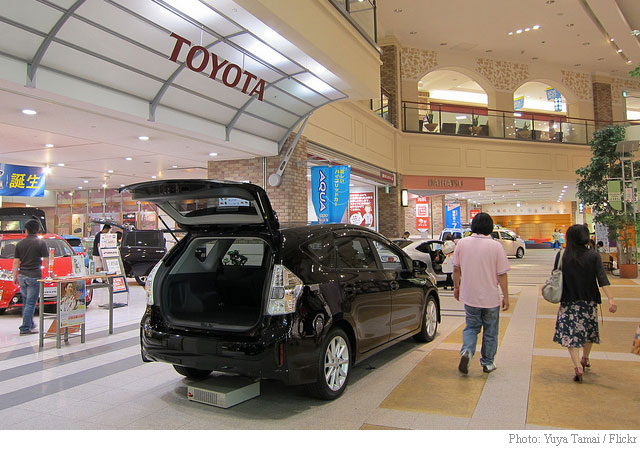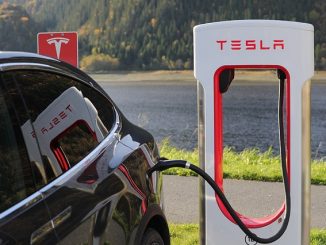Everyone knows that making the global transition from conventional to electric cars is more than just a fad. Aside from electric car industry leader Tesla (Nadsdaq: TSLA), other large car makers are joining in the quest to improve the performance of the current electric vehicles available commercially. The effort, however, is still far from being able to convince the public to completely shift to electric cars. Aside from costing more, electric vehicles, and even hybrid ones still take way more time to fully charge compared to the time it takes to load up on gas, not to mention the aspect of a limited driving range. But this is where Toyota, the world’s second largest car manufacturer’s research can come into play.
Toyota has announced that it is nearing a breakthrough in the electric car technology with its new and improved electric car battery. According to a report in the Wall Street Journal, the company is already in the production engineering stage of creating a smaller, lighter battery by using solid electrolytes. Solid state batteries contain solid electrodes that would allow for 6x faster charging, twice the energy density for the same volume, increase in cycle life to 10 years compared to the usual 2 and low leakage currents. Furthermore, the use of solid electrolytes makes the battery non flammable which results in it being a much safer choice in the commercial scene. Lithium-ion batteries are the standard batteries used in electric cars available in the market today. Aside from having a relatively short useful life, they are also composed of flammable organic solvent.
The Japanese car maker started working towards an all-electric vehicle years ago and it was in 2011 when it announced its collaboration with academic researchers to perfect crystalline structures that will move lithium ions through a solid electrolyte. The success of the project would mean being able to push the boundaries of electric vehicle design, making them safer and more comfortable based on the increase in charge capacity while at the same time having a smaller battery footprint. It will also make for more efficient electric vehicles that can travel farther and take less time to charge. Additionally, The Wall Street Journal notes that Toyota’s use of a solid state battery will increase the overall ‘useable’ life that translates to greater potential for product recycling after being used in the vehicle, such as in homes or commercial energy storage.
It is projected that this new technology could be available in electric vehicles as early as 2020. As of last year, electric vehicles only made up 1% of the total car sales. If Toyota is able to keep to its time table, it would then become a key factor in confirming analyst predictions of a more cost efficient, and even cheaper built in comparison to conventional vehicles by 2022. Will this change in pricing become the tipping point for global consumers to finally shift to electric cars? It seems like we don’t have to wait much longer to find out.
Reference: The Wired UK




Leave a Reply